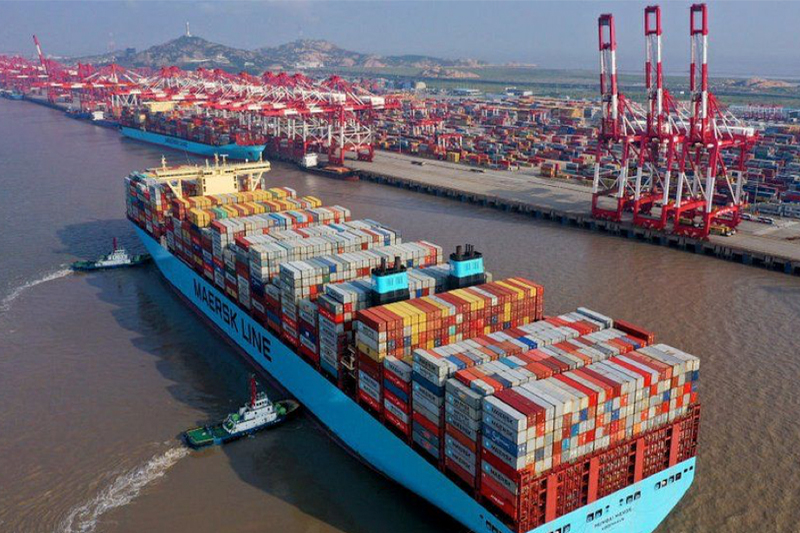
Many workshops may have recently had notification from their lubricant suppliers that product prices are due to increase, despite fuel costs on the forecourts generally falling. But why is this and how has Covid affected global supply? The Witham Group explains.
Base oil shortage
We operate in a truly global economy, and nothing has illustrated this more than the recent, ongoing raw material shortages. Base oils are in very short supply, both mineral and synthetics. One of the main reasons for this is that base oils are created as a by-product of crude oil refining. Oil refining takes crude oil from the ground and distils it in different grades to create mainly fuel (petrol and diesel) with other grade products used for heating oils, kerosene (jet fuel), hydrocarbon products for making synthetic rubbers, paints, plastics and then also lubricant based stock oils.
During the global lockdown, travel has greatly reduced both commercially and personally, with many of us working from home and not commuting. There have been very few planes flying so no need for Kerosene, which as an industry is a huge user of fuel.
Demand for fuel, therefore, has fallen dramatically and subsequently the global oil companies are simply not producing the fuel because of the huge stockpiles all around the world. As a consequence, base oil production has also been slashed. The shortage has led to a sharp spike demand and a rise in global lubricant costs. Ironically, due to the abundance of unused fuel, and a decrease in usage and demand, there has been a fall in fuel prices .
Challenges for lubricant manufacturers and suppliers
All lubricant manufacturers are heavily reliant on the timely and full supply and delivery of base oils, additives and chemicals, which are crucial to the development of lubricants. The production process itself involves the manufacturers selecting and mixing raw materials and testing them against the specifications shared by the users or developing tailor-made lubricants for various applications in collaboration with OEMs.
The Independent Commodity Intelligence Service ICIS has provided a general overview of the current base oils market: “Base oils availability across Europe and the Middle East have faced severe constraints throughout the first quarter of 2021.”
There are number of factors which have had a direct impact on the lubricant industry:
- Cargo capacity, especially in aviation/on aircraft, has become limited. Whereas before, some cargo was normally carried on passenger flights, it is now being partially transported on ships. As a result, freight rates have increased and sometimes ships do not have the extra capacity to carry cargo of this kind
- An increased demand for products originating from China has also tightened freight capacity and in 2020 the overall freight capacity was considerably reduced. As a result, prices from the Shanghai Shipping Index for container cargo have almost tripled
- Less demand for transportation has in turn reduced the demand for fuel. As some base oils and precursors for synthetic hydrocarbons, for example naphtha, are also part of the fuel production process, their production has been scaled down as well. Chemical-based precursors made from crude oil such as ethylene oxide and polyglycols are also scarce. Lube blenders, therefore, reported a shortage on crude oil-based additives and plastic containers
- Lockdowns across Europe and beyond have also reduced the number of staff working at lubricant facilities, therefore, leading to bottlenecks in production and increased costs. Meaning orders cannot be produced and delivered in a timely fashion
Unrelated to Covid-19, yet still directly impacting the industry, globalisation and increased market prices have also affected the production of base oils and other raw materials used in lubricants manufacturing.
Supply chains can also often fall victim to unpredictable events whether it be trade barriers, natural disasters, or production losses. For example, there has recently been an unprecedented number of 27 “Force Majeur” reports from various raw material manufacturers which have detailed weather-related problems such as that in Texas in February 2021. This saw the State document record-low temperatures, which caused power failures and further delays in production.
The failure of a single production plant can significantly limit the global availability of certain substances and components, especially since storage capacities are limited for budgetary reasons.
Short-term bottlenecks in production and delayed deliveries in the transport and packaging sectors also leads to an overall shortage in all types of raw materials. For example, steel used in barrels to transport goods can often become scarce. The above are just a few factors, which have had a direct impact on the industry and have primarily led to a shortage in raw materials in the desired quantity and meeting the relevant specifications. Sadly, there is no way to predict or foresee what the future may hold and to determine when these shortages will be rectified.
Nigel Bottom, MD of UK Lubricant Manufacturer, Witham Group, said: “The increases that our industry is unfortunately having to pass over to its customers are some of the highest we have experienced in our history. This is a global problem affecting supply issues for all sorts of commodities made from oil.
“Many companies and industries will be finding delays and price increases on a whole range of other products and parts where production, transport and supply has been seriously affected. This is an unfortunate situation we find ourselves in but one that we are not alone in. We have strong contingency procedures in place to allow continued production of our vital products but it is a trying time for everyone.”








